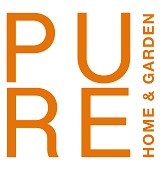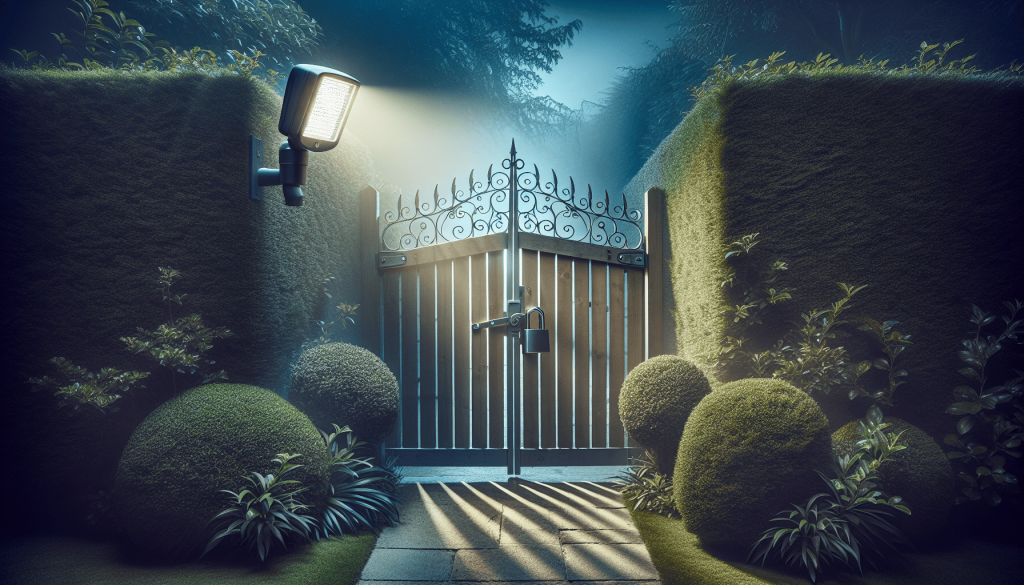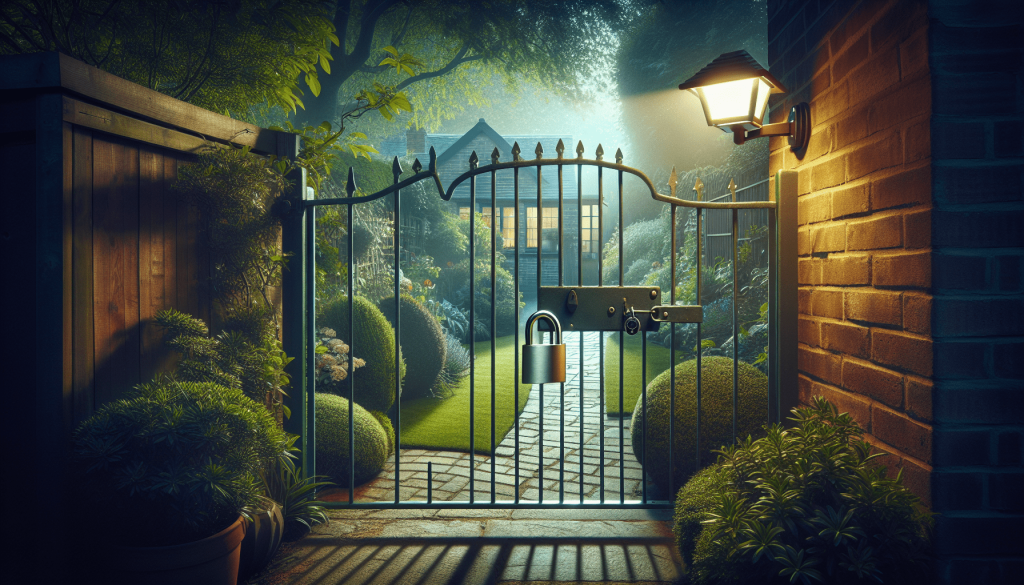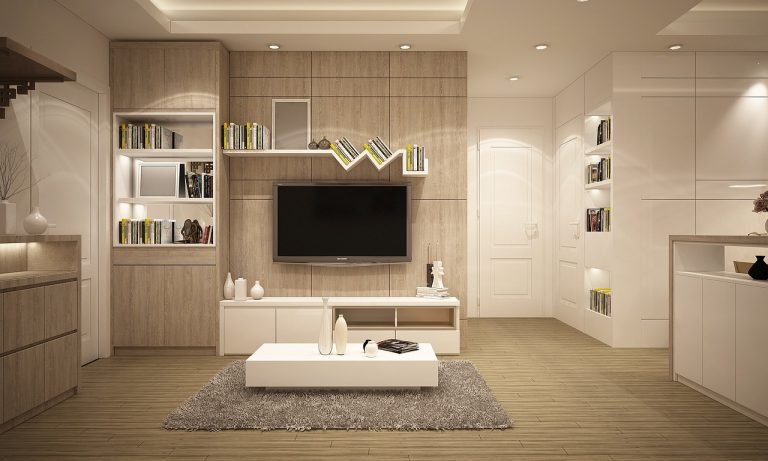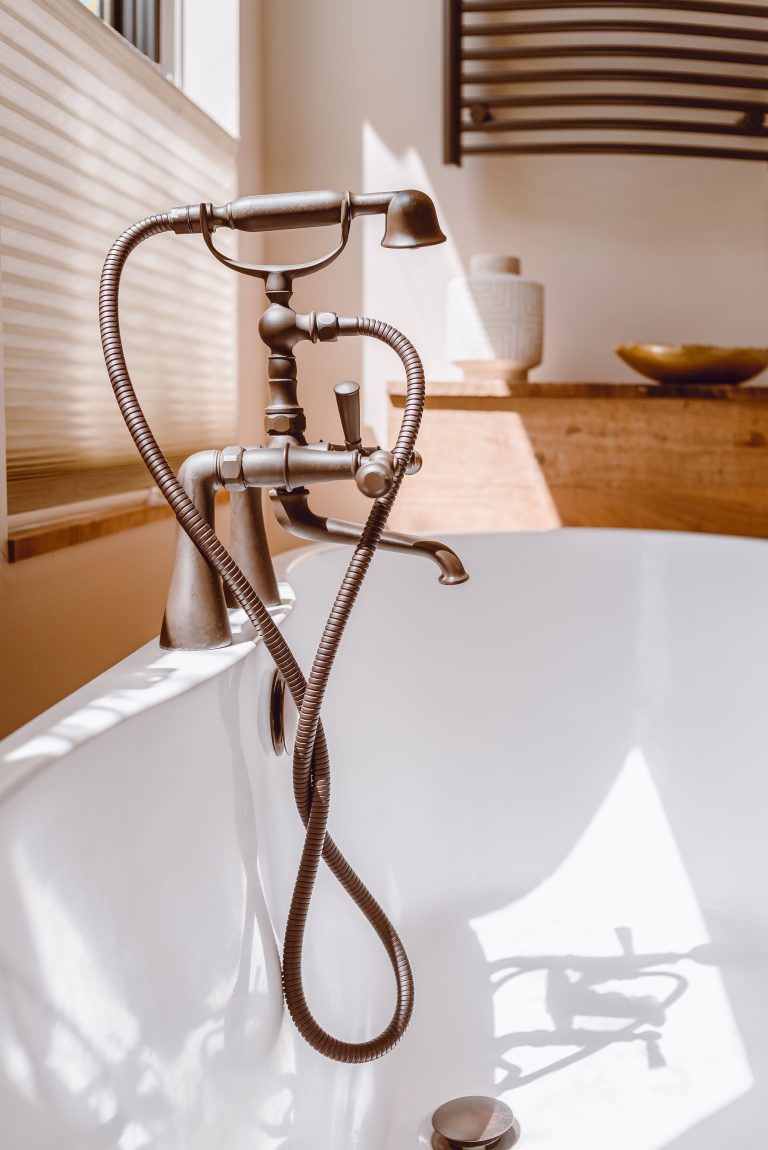If you have a garden in the UK, ensuring its security should be a top priority. From deterring burglars to protecting your plants and belongings, there are several key considerations to keep in mind. This article explores the various aspects you should think about when it comes to garden security, including the types of fencing, lighting options, and surveillance systems available. By taking the necessary precautions, you can enjoy your outdoor space with peace of mind.
Table of Contents
ToggleFencing and Gates
When it comes to garden security in the UK, one of the first things you should consider is installing strong and reliable fencing and gates. Not only do they provide a physical barrier to deter unwanted intruders, but they also serve as a visible indication that your garden is protected. There are several types of fencing to choose from, including wooden, metal, and vinyl options. Each has its own advantages and disadvantages, so it’s important to consider factors such as cost, durability, and maintenance requirements before making a decision.
Types of fencing
Wooden fencing is a popular choice for many homeowners due to its classic and natural look. It can be easily customized to suit your garden’s aesthetic, and it provides a good level of privacy. However, wooden fences may require regular maintenance to prevent rotting, warping, or insect damage.
Metal fencing, such as wrought iron or steel, is known for its strength and durability. It offers a high level of security and is resistant to weather conditions. However, metal fences can be more expensive than wooden ones and may not provide as much privacy.
Vinyl fencing is a relatively low-maintenance option that offers both privacy and security. It is resistant to rot, warping, and pests, making it a popular choice for many garden owners. While vinyl fences may not have the same visual appeal as wooden or metal ones, they are available in a variety of styles and colors to suit different preferences.
Height and durability
Aside from choosing the right type of fencing, it’s important to consider its height and durability. A taller fence can provide an additional layer of security by making it harder for intruders to climb over. The recommended height for garden fences in the UK is usually around 1.8 to 2 meters (6 to 6.5 feet), but it may vary depending on local regulations and personal preferences.
Furthermore, make sure to select fencing materials that can withstand the climate and weather conditions in your area. The UK experiences a range of weather conditions throughout the year, so it’s important to choose a fence that can resist rain, wind, and temperature fluctuations.
Lockable gates
In addition to secure fencing, having lockable gates is crucial for enhancing garden security. A gate provides a point of access to your garden, and by adding a lock, you can control who enters your property. There are various types of lockable gates available, including padlocks, combination locks, and electronic locks. The choice depends on the level of security you desire and the convenience you prefer.
A lockable gate not only prevents unauthorized entry but also serves as a visual deterrent to potential intruders. It sends a message that you take the security of your garden seriously and are actively taking steps to protect your property. Plus, it gives you peace of mind knowing that your garden is secure, especially when you’re away from home.
Outdoor Lighting
Outdoor lighting is another valuable aspect of garden security that should not be overlooked. Adequate lighting not only increases visibility in your garden but also discourages potential trespassers from approaching. There are different types of outdoor lighting options available, each serving its own purpose.
Motion sensor lights
Motion sensor lights are particularly useful for detecting any movement and triggering the lights to turn on. This sudden burst of light is often enough to startle intruders and draw attention to their presence. By installing motion sensor lights around your garden, you can ensure that any suspicious activity is immediately illuminated, making it harder for trespassers to go unnoticed.
Solar-powered lights
Solar-powered lights are an eco-friendly and cost-effective alternative to traditional outdoor lighting. These lights collect energy from the sun during the day and use it to illuminate your garden at night. By installing solar-powered lights in your garden, you can enhance its security without adding to your electricity bill.
Placement for maximum coverage
When it comes to placing outdoor lights for maximum coverage, it’s important to consider key areas such as entrances, pathways, and vulnerable spots. By strategically positioning the lights, you can eliminate dark areas that intruders may take advantage of. It’s recommended to install lights at different heights to enhance visibility and cover a wider area of your garden.
Additionally, consider installing lights with adjustable motion sensors so that you can customize the sensitivity and range according to your garden’s layout and your specific security needs. This way, you can minimize false activations while still effectively illuminating any potential threats.
Security Cameras
Installing security cameras is an excellent way to deter crime and capture evidence in case of any incidents. There are various types of cameras available, each with its own features and capabilities.
Types of cameras
CCTV cameras are a popular choice for garden security as they provide high-quality video footage that can be accessed and reviewed at any time. These cameras can be connected to a digital video recorder (DVR) or a network video recorder (NVR) to store the recordings.
Wireless IP cameras are another option that allows you to monitor your garden remotely via an internet connection. These cameras are easy to install and can send real-time video feed to your smartphone or computer, enabling you to keep an eye on your garden no matter where you are.
Placement for optimal coverage
When deciding on the placement of your security cameras, consider the most vulnerable areas of your garden where intruders are likely to enter or linger. These may include entrance gates, pathways, or any areas that provide easy access to your property. By capturing clear footage of these areas, you increase the chances of identifying any potential threats or illegal activities.
Ensure that your cameras are well-positioned and placed at a height that provides a good vantage point. This prevents intruders from tampering with or disabling the cameras easily. It’s also important to keep your cameras protected from harsh weather conditions by placing them in weatherproof enclosures or housing.
Remote viewing capabilities
One of the key advantages of modern security cameras is the ability to access the footage remotely through a smartphone, tablet, or computer. This remote viewing capability allows you to monitor your garden in real-time and review the recordings whenever needed. Whether you’re at work, on vacation, or simply away from your property, you can have peace of mind knowing that you can keep an eye on your garden at all times.
Alarm Systems
Alarm systems add an extra layer of security to your garden by alerting you and potentially deterring intruders in the event of a breach. There are different types of alarm systems available, and the choice depends on your preferences and budget.
Wireless or wired systems
When it comes to choosing between wireless and wired alarm systems, it’s important to consider factors such as ease of installation, reliability, and maintenance. Wireless alarm systems are generally easier to install as they don’t require any complicated wiring. They are also more flexible in terms of placement since they can be easily moved or expanded if needed. However, wireless systems may be more susceptible to signal interference or hacking attempts.
On the other hand, wired alarm systems provide a more stable and reliable connection, as they are directly connected to your home’s power supply. They are generally harder to tamper with or disable, providing a higher level of security. However, the installation process for wired systems can be more complex and may require professional assistance.
Sirens and alerts
An important component of any alarm system is the siren or alert mechanism. This audible alarm is designed to warn you and deter intruders when a breach is detected. The sound of a loud siren can be highly effective in alerting others nearby to the presence of an intruder, potentially reducing the amount of time they have to carry out any illegal activities.
In addition to the siren, newer alarm systems often come with the option of sending alerts directly to your smartphone or other connected devices. These alerts can notify you instantly when a breach occurs, allowing you to take appropriate action or notify the authorities if necessary.
Monitoring options
Alarm systems can be either self-monitored or professionally monitored, and the choice depends on your individual needs and preferences. Self-monitoring involves monitoring the system yourself and taking action in response to any alerts or notifications. This option is usually more cost-effective, but it requires you to be actively involved in the monitoring process.
Professionally monitored alarm systems involve a third-party monitoring company that receives alerts from your system and takes appropriate action on your behalf. This can include contacting the authorities or dispatching security personnel to your property. Professional monitoring provides an additional layer of security and peace of mind, but it comes at a higher cost.
Secure Storage
In addition to securing your garden as a whole, it’s important to consider the security of valuable tools, equipment, and other belongings that may be stored there. Secure storage options provide an extra level of protection and help prevent theft or damage.
Garden sheds
Garden sheds are a popular choice for storing gardening tools, equipment, and other belongings. When selecting a garden shed for security purposes, it’s important to choose one that is well-built and made from sturdy materials. Look for sheds with reinforced doors, strong locks, and windows that can be protected with bars or grilles. Additionally, consider installing an alarm system or security cameras inside the shed for added protection.
Lockable containers
Lockable containers, such as storage boxes or chests, are ideal for securing smaller tools and valuables. These containers can be locked and stored inside your garden shed or in a hidden location within your garden. Choose containers that are made from durable materials and feature high-quality locks to ensure optimal security.
Securing valuable tools and equipment
In addition to secure storage options, there are other measures you can take to protect valuable tools and equipment in your garden. Consider using security cables or chains to lock large or heavy items to fixed structures, such as posts or walls. This makes it more difficult for intruders to steal or remove these items. Additionally, remember to store any portable power tools or expensive equipment indoors when not in use, rather than leaving them unattended in your garden.
Plant and Landscape Design
Strategic planting and landscape design can play a significant role in enhancing the security of your garden. By incorporating certain elements, you can create natural barriers and deterrents for potential intruders.
Strategic planting for natural barriers
Strategically planting dense bushes or hedges around the perimeter of your garden can create a natural barrier that makes it more difficult for intruders to enter. Choose plants that are thorny or prickly to further discourage any attempts to breach the barrier. Examples of such plants include rose bushes, blackberry bushes, or hawthorn hedges. Not only do these plants provide security, but they also add beauty and privacy to your garden.
Thorny plants and hedges
In addition to natural barriers, consider incorporating thorny plants or hedges around vulnerable areas, such as windows or fences. These plants act as an additional deterrent, making it harder for intruders to access these areas. Remember to keep these plants well-maintained and trimmed regularly to ensure they serve their purpose effectively.
Landscaping to deter access
Strategic landscaping can also help deter potential intruders by removing hiding spots and improving visibility. Trim back any overgrown shrubs or trees near windows, gates, or other access points to eliminate potential hiding places. Additionally, consider installing gravel paths or driveways, as the crunching sound they create can alert you to someone’s presence. Well-lit pathways and entrances also discourage unauthorized entry by increasing visibility and reducing potential hiding spots.
Security Marking
Security marking is an effective way to deter theft and discourage potential intruders from targeting your garden. By marking your property and belongings, you make them less appealing to thieves and increase the chances of recovery if they are stolen.
Permanent marking of property
Permanent marking involves engraving or stamping your personal details or a unique identifier onto valuable items such as garden tools, equipment, or furniture. By visibly marking your property, you make it less attractive for thieves to steal, as it becomes more difficult for them to sell or dispose of marked items. Ensure that the marking is clearly visible and consider using an indelible marker or specialized engraving tool for durability.
Visible signage
In addition to marking your property, displaying visible signage can act as a deterrent to potential intruders. Signs indicating that your garden is protected by security measures, such as surveillance cameras or alarm systems, can discourage criminals from targeting your property. Place these signs strategically at entrances or other visible locations to maximize their impact.
Registering with local authorities
Consider registering your valuable items, such as garden tools or equipment, with a national property database or a local authority. This can increase the chances of recovery if your belongings are stolen and later found. Registering also provides a way for law enforcement agencies to verify ownership and return the items to their rightful owners.
Access Control
Controlling access to your garden is a crucial aspect of garden security. By implementing access control measures, you can ensure that only authorized individuals can enter your property.
Consideration of entry points
When assessing the access points to your garden, focus on securing vulnerable areas such as gates, fences, and boundaries. Inspect these areas regularly for signs of wear or damage that may compromise their security. Reinforce gates with sturdy locks or bolts and consider installing gate alarms that alert you whenever the gate is opened. Additionally, ensure that fences are in good condition and without any gaps that could provide easy access.
Keyless entry systems
Keyless entry systems offer a convenient and secure way to control access to your garden. These systems use electronic keypads, smart locks, or even biometric technology to grant entry to authorized individuals. By eliminating the need for keys, you remove the risk of lost or stolen keys falling into the wrong hands. Keyless entry systems can also be programmed to provide temporary access codes for guests or service providers, allowing you to maintain control over who enters your garden.
Controlled access for guests
When it comes to controlling access for guests, it’s important to strike a balance between security and convenience. Consider installing a separate entrance or gate for visitors, ensuring that it does not compromise the security of your garden. This allows you to grant access to guests without compromising the overall security of your property.
Neighborhood Watch and Community Involvement
Building a sense of community and actively participating in a neighborhood watch program can significantly enhance garden security. Working together with your neighbors can create a collective effort to deter crime and lookout for each other’s properties.
Joining local groups
Research if there are any local neighborhood watch groups or community organizations in your area and consider joining them. These groups often organize events, meetings, and workshops focused on improving safety and security within the community. By joining, you can gain valuable knowledge, exchange information, and collaborate with like-minded individuals who share similar security concerns.
Sharing information and concerns
Regular communication with your neighbors is essential in maintaining a vigilant and secure neighborhood. Share information about any suspicious activities, incidents, or concerns that you observe in your garden or the surrounding area. This sharing of information can help identify patterns or potential threats, enabling the community to take appropriate action collectively.
Collective security measures
Consider implementing collective security measures within your neighborhood. This can include organizing regular patrols, using shared security cameras, or investing in communal lighting for public areas. By working together to enhance security, you create a strong deterrent against potential intruders and help ensure the safety of everyone in the community.
Regular Maintenance and Inspection
Lastly, regular maintenance and inspection of your garden security measures are vital to ensure their effectiveness and longevity. By staying proactive and addressing any issues or vulnerabilities promptly, you can maintain a secure environment for your garden.
Checking fences and gates
Regularly inspect your fences and gates for any signs of damage, wear, or vulnerability. Look for loose or broken parts, including hinges, latches, or locks. Repair or replace any damaged components promptly to maintain the integrity of your fencing and gates.
Testing alarm systems
Regularly test your alarm systems to ensure they are functioning correctly. This includes checking the batteries, testing the sensors, and simulating a breach to verify that the alerts or sirens are triggered appropriately. Regular testing helps identify any malfunctions or weaknesses in your system and allows you to address them promptly.
Maintaining clear visibility
Keep your garden well-maintained by regularly trimming bushes, hedges, and trees that may obstruct visibility. Overgrown vegetation provides hiding spots for potential intruders and reduces the effectiveness of your security measures. Maintain clear lines of sight around entrance points and pathways to increase visibility and discourage unauthorized access.
In conclusion, securing your garden should be a priority to protect your property and provide peace of mind. By considering various aspects such as fencing, lighting, security cameras, alarm systems, secure storage, plant and landscape design, security marking, access control, community involvement, and regular maintenance, you can create a robust and comprehensive garden security plan. Remember, no single measure can guarantee complete security, so it’s essential to implement a combination of measures to provide effective protection for your garden in the UK.
